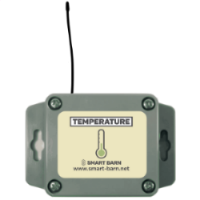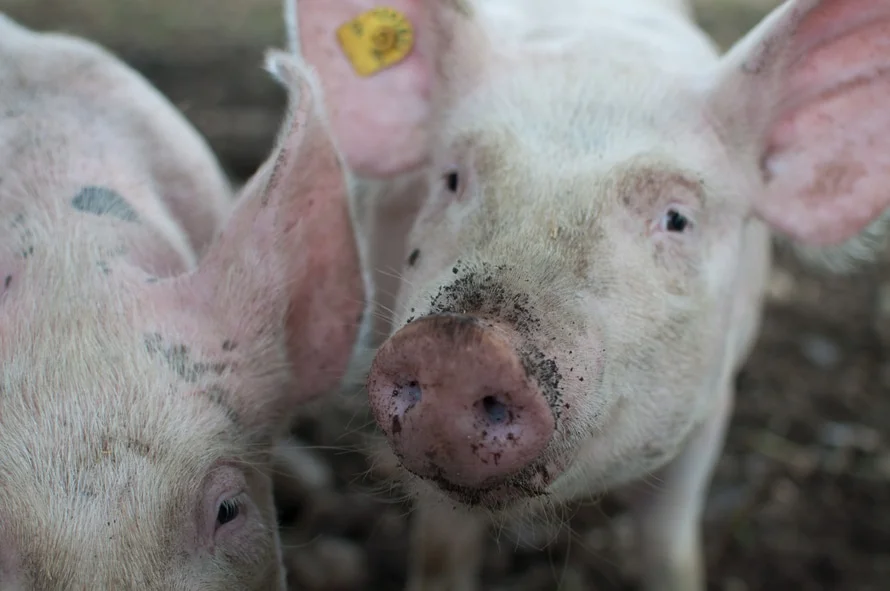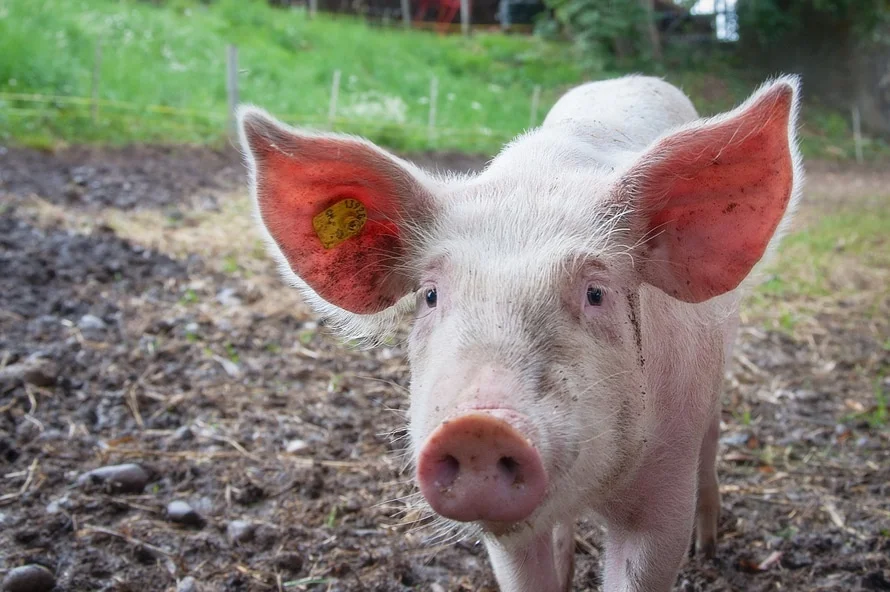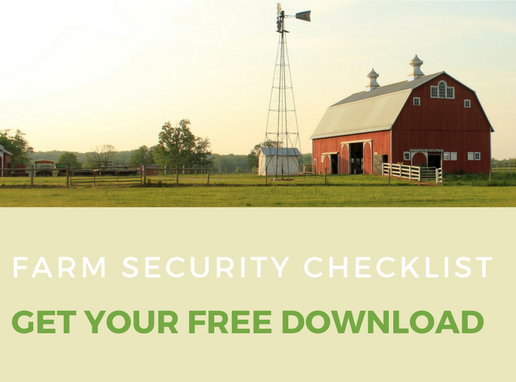It's important to have a livestock farm alarm to detect power outages and high temperatures on a poultry farm, because fried chicken is only good on the dinner table, and roast turkey is great, but only if it's roasting in your oven. Learn how your broilers can thrive, your layers max out their production, and your turkeys to make it to thanksgiving, with these key alarm system considerations.
The Complete Guide to Cellular Monitoring on your Farm After The 3G Shutdown
What does 3G have to do with your livestock farm alarm?
What does 3G have to do with your livestock farm alarm?
Verizon announced last year that they would be sun setting their 3G service by the end of 2020. Matter of fact, all four of the major carriers (Verizon, AT&T, Sprint, and T-Mobile) will be abandoning 3G within the next year or two in favor of the faster, more streamlined 4G LTE.
Chances are you wouldn’t be reading this right now if you didn’t have a need for remote monitoring. But if you’ve got a barn full of hogs, turkeys, chickens, cows or any other livestock, you know how important it is to monitor your farm 24/7. Fresh air, sufficient feed and water, comfortable temperatures, and physical security all play crucial roles in the success of your farm. So smart farmers keep tabs on these factors at all times.
There are a number of ways you could monitor your farm from a distance…
An old fashioned telephone line with an alarm dialer (good luck trying to deal with all the wires if you even manage to gain access to a telephone line in this day and age.)
An Internet-based monitoring system that functions through Wi-Fi (if you’re somehow able to get reliably fast Internet in your area, chances are slim of getting Wi-Fi out in your barn)
A wireless system like Smart Barn that monitors, tracks and notifies in real-time with an always-on cellular connection. Since day one, we’ve been using Verizon’s 3G network. That’s why 3G matters for your farm.
3G, 4G, 5G - what’s the difference?
In cellular network-ese, “G” stands for “generation”. Technology moves crazy fast - in the space of less than forty years, we’ve seen five generations of cellular service.
3G
Came about in the early 2000s. While 2G only let you call and text, with 3G you can also access the Internet from your mobile device. 3G allows for nearly as many capabilities on mobile devices as are available on a desktop computer. When 3G first became available, lots of companies like ours started using it to do things that weren’t possible before… Like monitoring your farm 24/7 no matter where you are.
4G LTE
Gained steam in the 2010s, and is what most if not all carriers support today. 4G is supposed to be 500 times faster than 3G, but in reality it depends on a number of factors. Hence the three little letters “LTE”, which stand for “Long Term Evolution”. This just means that 4G LTE has the capability to constantly evolve and be improved. 3G isn’t as “stretchy” as 4G LTE, which is why Verizon is shutting it down. The good news about 4G LTE is that it will be around for quite a while. Most providers (including our partner Verizon) anticipate using and improving 4G LTE for another ten years at least.
5G
By far the fastest and most powerful generation to date. But right now it’s still in its infancy. Even though a lot of wireless carriers do currently offer it, it isn’t as common and easily accessible as 4G LTE yet. The range of 5G is shorter and 5G towers are currently fewer and farther between than 4G LTE towers.
In our conversations with farmers, one of the biggest concerns is whether or not 5G will be replacing 4G anytime soon. After all, since the major wireless carriers are all dropping 3G now in favor of 4G LTE, won’t they just do the same thing with 4G in a couple of years?
The short answer is no. The slightly longer answer is that 5G is designed in such a way that it will only be effective in bigger cities for the foreseeable future. America isn’t likely to see 5G becoming the norm in this decade, so people using 4G LTE have nothing to worry about.
Smart Barn Livestock Farm Alarm has you covered
The 3G shutdown didn’t catch us by surprise here at Smart Barn. As soon as we saw the potential that 4G LTE had to improve the lives of farmers, we got to work on making a 4G gateway that will work significantly faster than our old 3G gateway.
Here’s what that means. Every one of the sensors you install (whether temperature, humidity, bin level, water pressure, door status, you name it) communicate directly to the gateway, which then stores that information in the cloud, where you can access it from your device any time from anywhere.
If you’re already a Smart Barn user: all you need to do is purchase our 4G gateway, unplug your 3G gateway, plug in your new one, and your sensors will all automatically make the transition.
If you’re not experiencing peace of mind with Smart Barn yet, now is your chance to take advantage of 24/7 monitoring of your farm! You don’t have to keep worrying, guessing, or wasting time and money from lack of awareness about your livestock’s wellbeing. Smart Barn gives you peace of mind around the clock.
Contact us today to get set up!
The Importance of Livestock Farm Alarms and Monitoring for Your Poultry House
It's important to have a livestock farm alarm to detect power outages and high temperatures on a poultry farm, because fried chicken is only good on the dinner table, and roast turkey is great, but only if it's roasting in your oven. Learn how your broilers can thrive, your layers max out their production, and your turkeys to make it to thanksgiving, with these key alarm system considerations.
Water Needs in the Winter
An unfortunately common misconception is that livestock farmers don’t need to provide their animals with as much water in the winter as they do the rest of the year. While it is true that heat stress related dehydration isn't an issue in the winter, your animals still expend significant energy trying to keep warm, eating more as a result.
Importance of Monitoring Your Foals and Mares
Whether you choose to let your mare give birth in a birthing stall or in an enclosed pasture, it’s important to keep her and her new foal safe and comfortable. Especially in their first days of life, foals are at risk from predators like dogs and mountain lions. For this reason most horse owners take advantage of the safety of a stable.
Refer A Friend & Receive a $100 Bonus!
Do you like the peace of mind Smart Barn gives you? Do you love how much time Smart Barn saves you? Do you know someone that could benefit from Smart Barn? If so, we want to reward you for sharing with your friends and family! For the rest of 2016, we're extending a $100 referral bonus to any current Smart Barn customer who refers a friend!
Six Reasons to Monitor Your Pig Farm
Monitoring Temperature Remotely on Your Dairy Farm
Dairy cows are most productive when they're comfortable, and they're most comfortable in an environment between 40 and 65 degrees Farenheit. While their thick skin and natural insulation helps them stay warm in cooler temperatures, it also makes them more prone to heat stress in warm weather.











